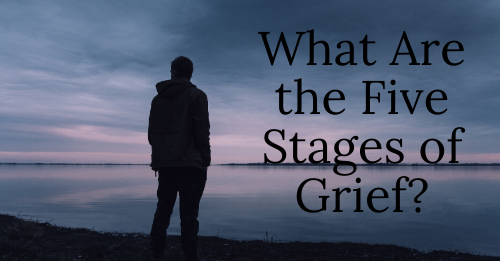Grief is a universal experience and one brought on by a multitude of different factors — loss of a loved one, divorce, terminal medical news or even substance abuse. In 1969, Swiss psychiatrist Elizabeth Kübler-Ross outlined five stages of grief based on her work with critically ill patients. Kübler-Ross claims that these stages do not need to occur consecutively and that some people may experience only one or two steps — or maybe none at all.
The Five Stages of Grief
While Kübler-Ross’ five stages of grief may help you understand your own grieving process — or that of a loved one — it’s essential to keep in mind that everyone grieves differently. Some people may show their emotions outwardly, while others may struggle more internally without an outward show of emotions.
Grief is different for every person, so you may begin the process of grieving a loss in the depression stage and find yourself in anger or bargaining next. You may skip some steps entirely or remain in one stage for months.
Although Kübler-Ross’ model of grief has received both criticism and acclaim since it was published in her book, “On Death and Dying,” these five stages of grief are still the most frequently observed:
- Denial: While denial can refer to an attempt at pretending the loss doesn’t exist, it’s also our way of trying to comprehend what is happening.
- Anger: Anger is our way of trying to cope with a new reality as well as extreme emotional discord. Anger allows us to express and release emotion with less fear of rejection from our loved ones.
- Bargaining: In this stage, we are trying anything we can to reverse the loss or minimize the pain associated with it. We often turn to a higher power or say things like, “If you heal or return this person, I’ll turn my life around for the better.”
- Depression: During our experience of processing grief, we may come to a point where the loss feels unavoidable. We may retreat from others and pull inward as the sadness grows — this stage can be incredibly isolating and is a natural stage in the grief process.
- Acceptance: In this stage, we may find that we are no longer resisting the reality of the loss. We may still feel pain and regret, but we’re no longer resisting the reality of what happened.
Tips for Dealing With Grief During Recovery
If you are coping with grief after the loss of a loved one or a major life change, remember that you are not alone. You may find it difficult to categorize your feelings into any of the above stages — and that’s okay. Allow yourself time to process all of your emotions, and have patience during this confusing time. When you’re ready to talk about your experiences with someone you love or a healthcare professional, don’t hesitate to do so.
If you’re supporting someone who is undergoing their own grief process, allow them room to talk about what they feel when they are ready. Other tips for helping someone who is experiencing the five stages of grief follow:
- Try not to force it: Nudging a loved one to talk about their pain when they’re not ready can sometimes be an obstacle to healing. Of course, the desire to help is natural, and we think the person will heal faster through communication. However, it’s best to let them come to you when they’re ready.
- Make yourself available: One of the best ways you can help a loved one through the grieving process is to let them know you’re available when they’re ready to talk.
- Avoid fixing them: Always remember that someone who is grieving does not need to be fixed. We may try to rescue our loved one or friend in an attempt to be helpful so that they will feel better. It’s important to refrain from this need to fix them, provide hopeful advice or offer humor. To anyone undergoing the grieving process, these reactions may make it seem as though we do not see or understand their pain.
Contact 7 Summit Pathways
At 7 Summit Pathways, we understand that you may be experiencing your own symptoms of grief and wondering whether you’ll ever feel okay again. Understandably, grief is complicated and may warrant a variety of emotional experiences, such as anger, confusion, numbness or sadness.
7 Summit Pathways offers holistic, individualized Recovery plans that can support you every step of the way on your journey to Recovery. Our experienced and compassionate staff members have helped thousands, and we understand what it takes to give you what works.
Contact us or schedule an appointment today to learn more about how we can help you meet your Recovery goals.

